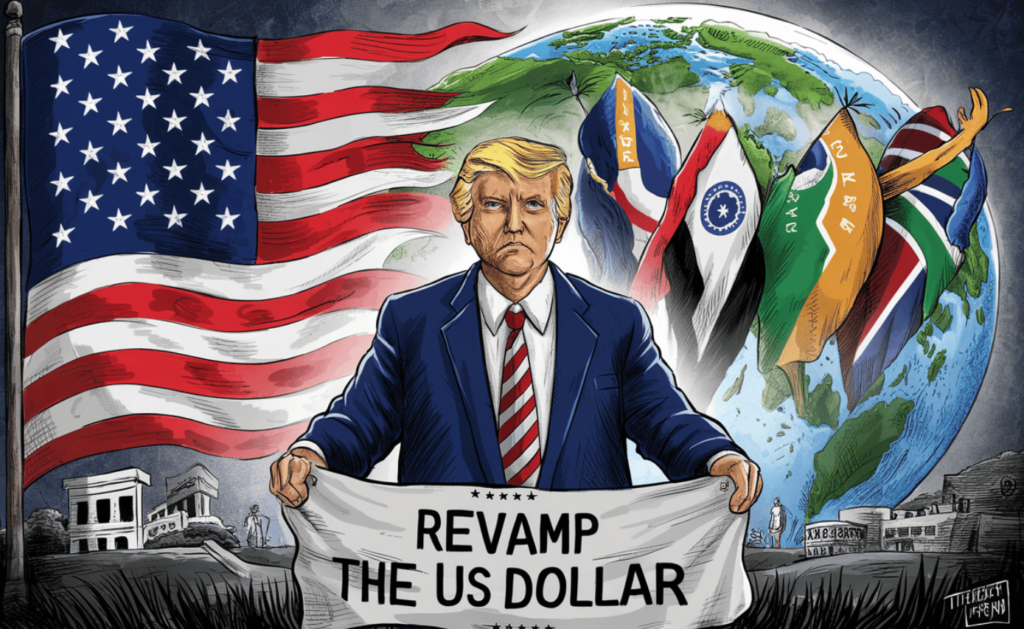Donald Trump plan to revamp the dollar would spur the US manufacturing sector but may cause harm to international business and aid the BRICS economies.
Donald Trump and JD Vance seek to devalue the dollar if Trump emerges as the winner. Such a strategy is causing controversy and concern.
Both Trump and JD Vance argued that the depreciation of the dollar strengthens American manufacturing and reduces the trade deficit, which they say is the key to addressing the “big currency problem” that erodes US manufacturers.
Will a Weaker Dollar Make the Economy Stronger?
Republicans consider a weaker dollar as a means through which to make products manufactured in the United States cheaper and attractive to the global market.
Analysts and investors indicate that reducing the value of the dollar may not be beneficial for the economy and could be costly in the long run.
That is why Trump’s tariffs on imports and tax cuts may help compensate for the weak dollar. JD Vance, during the Republican National Convention, stated that a weaker dollar would help the US manufacturing sector and undo years of globalization.
The dollar has appreciated by 15% against other currencies since the assumption of the Biden presidency, while the US trade deficit has reached $773 billion.
According to Vance and Trump, a high dollar increases the cost of domestic goods and worsens the trade balance.
Will This Benefit the BRICS Nations?
Sacrificing the dollar’s worth might be counterproductive by provoking a faster shift away from the dollar by BRICS nations. These countries are already planning to reduce the dollar’s dominance in the global economy. They want to diversify away from the greenback.
A weakened dollar might coax other countries to use BRICS currencies for international transactions and reserves to advance de-dollarization.
Nevertheless, a massive depreciation of the dollar could destabilize global markets and distort current business relations, particularly in the case of the BRICS countries conducting operations in dollars. De-dollarization is also contingent on the stability of these economies and the development of other financial systems.
Trump urged Federal Reserve Chair Jay Powell not to lower the rates before the November presidential election.
Some hope that Trump will not meddle with the Fed but will fire Powell if the latter does not support Trump’s economic policies despite Powell’s role in managing recent inflation issues.
As inflation moves closer to the Fed’s target of 2%, there are discussions on whether there will be another rate cut before the elections.
Trump has publicly disparaged Powell, engaging in discussions as to whether the man is more dangerous to the United States than China’s President Xi Jinping.

